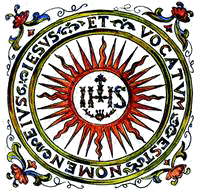A few paragraphs:
For a long time now, we hear references of how the Church was antagonistic to science, to reason, to tolerance, and a host of other tenets that the secular world holds sacred. But where would that same secular world be without the Church? What if the Catholic Church never existed?
... If the Catholic Church never existed, our separated Protestant brethren wouldn't have the Bible they accuse us of not following closely enough. It was the early Church that accumulated the works of the New Testament, protected them from insane Roman emperors, and through divine guidance, discerned which books would stay in the canon of Scripture and which books would not.
If the Catholic Church never existed, we wouldn't have hospitals. It was through the monastic system of the so-called Dark Ages where, for the first time in recorded history, the poor actually had a place to go for medical help. When Henry VIII decimated the monasteries in Britain after his break with Rome, it took the English hospital system decades to recover.
The Church has been taking the rap for most of the 20th century that it was anathema to science and discovery. This would have been strange news indeed for the multitudes in history that were protected by the Church, sponsored by the Church and blessed by the Church for furthering mankind’s understanding of the natural world.
Science itself didn't flourish until the Catholic Church’s creed flourished. Without a rock-solid, unalterable belief that God ordered the universe, it was impossible to explore that order. Zeus and his cohort didn't give the same assurance that the laws of the universe would work the same tomorrow as they did today.
(And if Galileo gives you pause, don't let him. Contrary to popular myth, the Church did not censor Galileo because he came up with a heliocentric [sun-centered] view of the solar system. It was only after Galileo began insisting that the Church alter Scripture that he found himself under house arrest in his well-appointed villa.)
One would be hard-pressed to find a more natural subject matter than the very genetic essence of life, and it was the Church once again that paved the path, through the humble efforts of an unassuming Augustinian monk named Gregor Mendel. The scientific research on genetics and heredity done by Mendel remains the wellspring from which all genetic research comes.
The university was a Catholic concept, and much of what Western Civilization discovered and revealed to the rest of the world was done so under the auspices of the Church. Without the scholarship, science and study of the natural world that the Catholic Church supported throughout two millennia, the world we inhabit would be such a poorer place. People wouldn't know as much as they know about astronomy, physics and moral philosophy, and they’d be walking around thinking The Da Vinci Code is history.
While universities stimulated intellectual inquiry, monks preserved the treasures of Western thought. Later, teaching orders brought education to the masses for the first time.
Read the rest of the article here.




















Intersting article! (Even if I'm not fond of the movie, lol.)
ReplyDeleteLOVED the Galileo point!